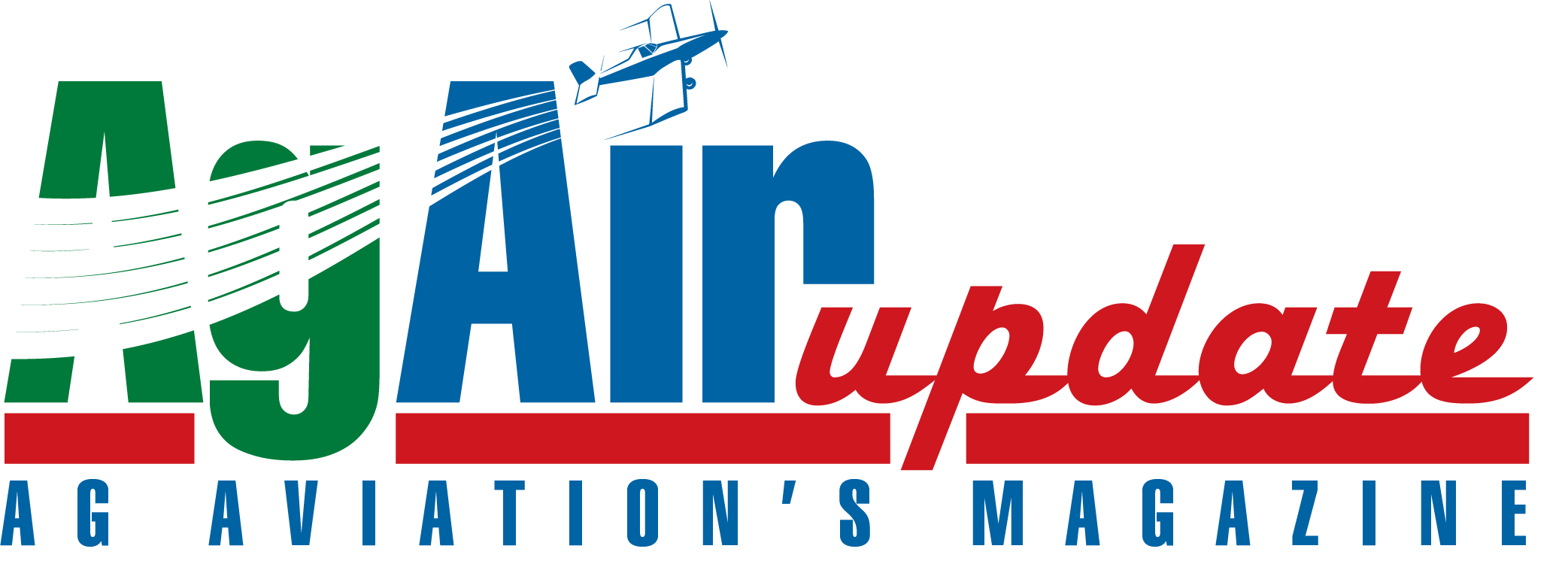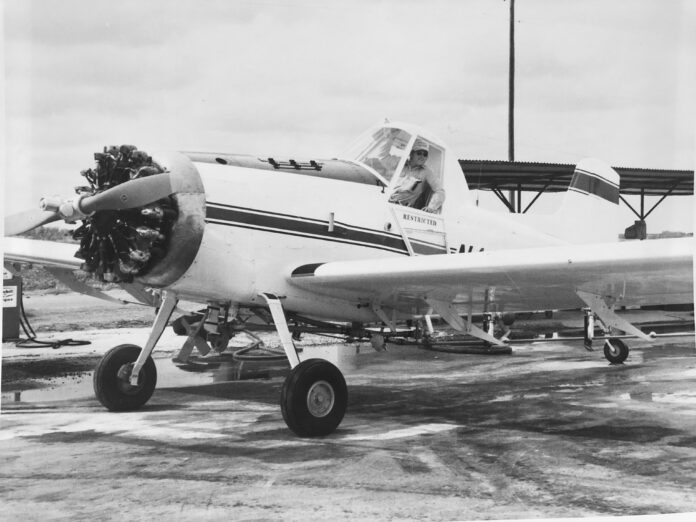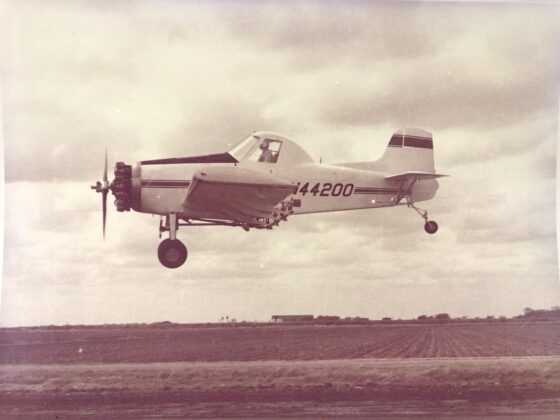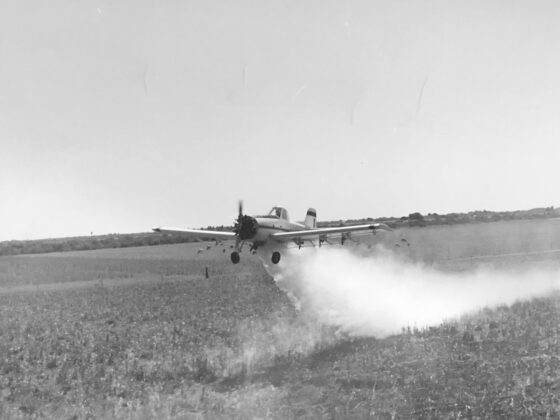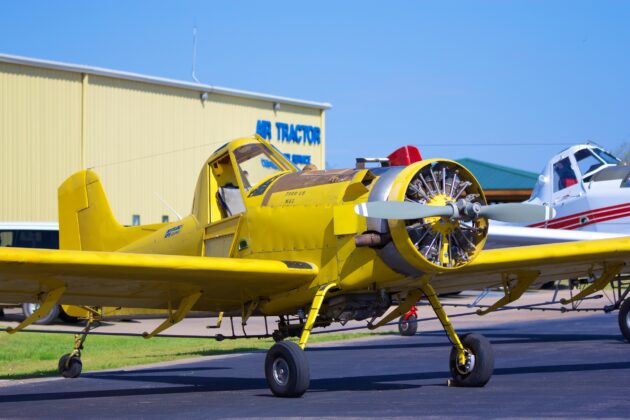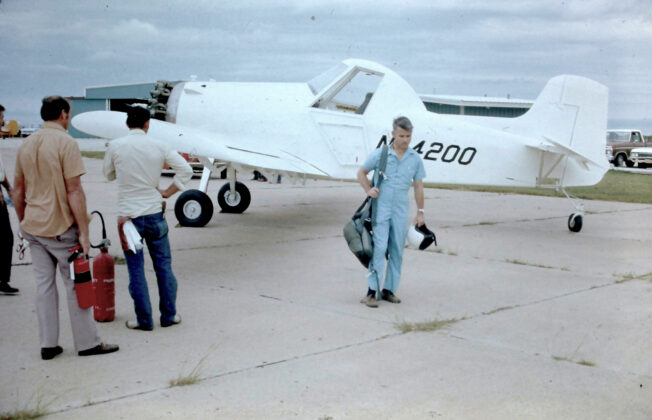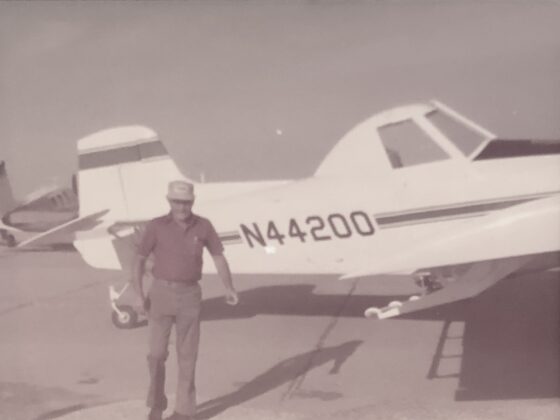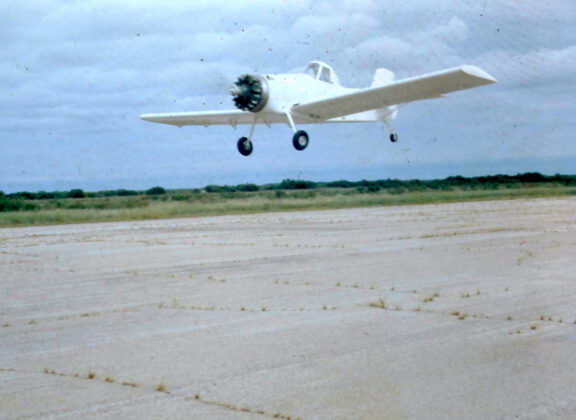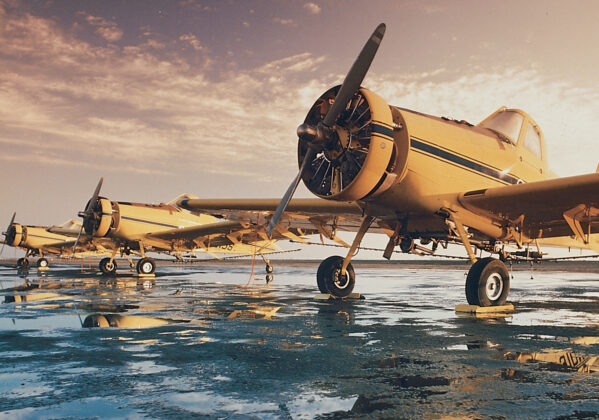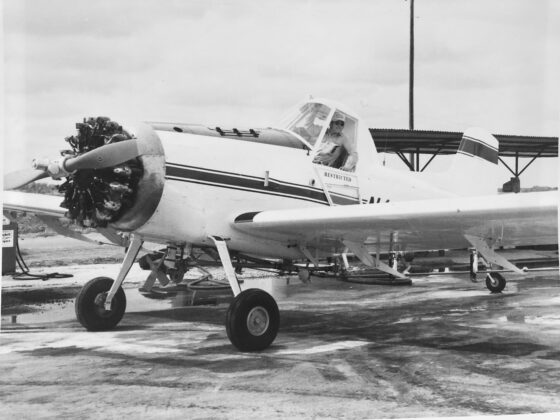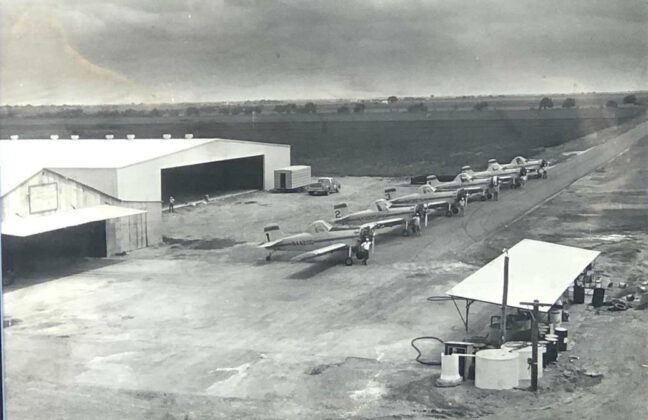Olney, Texas – Even after half a century and more than 4,000 airplanes delivered, each Air Tractor delivery is still a special moment for everyone involved in the manufacturing process. But nothing compares to Air Tractor serial number one, delivered in the early spring of 1974, to Burke Flying Service in Rio Hondo, Texas.
Jason Wilcox is the son of Mike Wilcox, one of the owners of Burke Flying Service. Jason was just two years old when the first Air Tractor arrived at his father’s ag spraying operation 50 years ago. But even as a toddler, Jason understood the new airplane was a big deal.
“Dad loved that airplane,” Wilcox remembers. “These planes are so beautiful. From what they accomplished from the start, to where they are now. It’s just an amazing bird… just beautiful to look at. I remember the airplane coming in. It was white and green. It’s jaw-dropping when you see it, especially in person.”
That first Air Tractor was conceived by Leland Snow in the early 1970s. It was to be Snow’s most advanced ag plane, with a powerful radial engine, aerodynamically sleek airframe, and a large capacity hopper. In March of 1970, in a tiny one-room rented office in Wichita Falls, Texas, Snow began designing what would become the AT-300. Alone, he worked 10-hour days, six days a week, for the next two years on the production drawings, the engineering reports, and plans for the prototype construction, which began in July of 1972.
Before his passing in 2011, Snow recalled the first Air Tractor delivery in his memoir Putting Dreams To Flight. “My good friend, Jeff Burke, and his partner, Mike Wilcox, were both from Rio Hondo, Texas, and together they owned an operation called Burke Flying Service. I had known Jeff and worked with him for a long time. He had helped with the construction of the first S-2 airplanes and had also bought several of them during the early days. In view of this association, he wanted to have the original Air Tractor, and I was delighted to have him as my first customer.”
Construction of the airplane would take place in the Olney armory building. Assembly of the fuselage frame and wing construction began in January 1973. On September 27th, the AT-300 was test flown. The first Air Tractor sale couldn’t come soon enough. Snow wrote, “Even though money was running a little low, we were still shooting for early March 1974 to make deliveries, and it appeared as though we were going to succeed… By this time, I was down to around $5,000.”
Jeff and Mike took delivery just in time, handing over a check for the very first purchase of an Air Tractor airplane. “So, we made it…although it was very close.” Snow observed. “We did all this with only four employees and me, and we did it for $175,000. I’m very proud of the accomplishment – I had walked into an empty building in mid-July of 1972, and in March of ’74, we delivered the first airplane,” Snow wrote.
Air Tractor spent the rest of 1974 building and delivering six more aircraft. By the end of the year, they had delivered a total of seven airplanes — and the rest, as they say, is history.
However, after Jeff and Mike had taken their airplane to West Texas to a higher elevation than the near sea-level condition in Rio Hondo, the airplane’s performance was not quite as strong. So, Mike brought the airplane back to Olney in December of 1974. Together with his employee, Francisco, he helped convert the first Air Tractor to a Pratt & Whitney R-1340 engine.
“Mike test-flew the airplane – which was designated as the AT-301 – and we got it certificated with a minimum of difficulties,” Snow recalled in the memoir.
In the early 1980s, Wilcox purchased Burke’s share of the business and continued operations under the name of Farm Services, Inc. Mike bought the last 6 of the 11 total Air Tractor airplanes. All of them were an integral part of Jason Wilcox’s youth. “Dad would put me up in the cockpit with him, and he’d take me flying from time to time, or he’d tell me to get in and move it, but that’s a pretty intimidating thing when you hear that big motor ramp up,” the younger Wilcox says.
Jason Wilcox remembers how his father took immense pride in his planes. “Everyone that Dad got, he put a new number on it, and his Air Tractors continued all the way to the turbine, which was his last Air Tractor. He didn’t put a number on that one, but it was number 11, and that was his baby. From the AT-300 with no air conditioner, to the turbine Air Tractor, the Cadillac of planes, it was quite a run.”
Wilcox also remembered how the community responded to seeing ag airplanes in action in the early days. Not all were fans, but people would watch from their front yards, or even pull over on the highway for a better look. His dad sometimes showed off, releasing columns of smoke for the onlookers. “He had fun with it,” Jason recalls.
At the time, the Lower Rio Grande Valley boasted 10 to 15 aerial applicators. Over the years, some retired, some gave up due to shrinking profit margins, and others simply left the farming industry. “Back in the day, aerial applicators would fly eight or nine months of the year. As years passed, the work slowly transitioned into a little bit less and less,” Jason said.
Farm Services, Inc. sprayed whatever needed to be applied, says Jason, such as mosquito applications, cotton defoliation, and more. “Dad did a lot of frost-flying, too. If a newer growth had a freeze coming, he’d fly over and kind of buzz the crops and try to knock some of that frost off.” If need be, the elder Wilcox would even venture into firefighting. “He would dump the water on grass fires and pastures from time to time. The thing about those ag pilots is, they were willing to do just about anything to help somebody. It didn’t matter what, where or when it was. That’s what they did.” Mike Wilcox eventually wound-down his spraying operations and retired in 2000.
Mike Wilcox passed away in October 2019, two months shy of his 80th birthday. He flew for more than 40 years. Jason Wilcox said he is proud to have witnessed this era in aviation history. “Who would have thought that it would evolve into where it is today? It blows me away to think about it,” Jason says.
Air Tractor is celebrating its 50th anniversary throughout the year, sharing stories and pictures tracing a half-century of people, events, innovation, and milestones.

